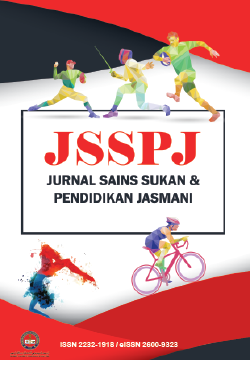UITM’s Student Knowledge, Attitude and Practice Towards Mental Health
DOI:
https://doi.org/10.37134/jsspj.vol11.1.7.2022Keywords:
Mental health, college student, knowledge, attitude, practiceAbstract
Growing awareness is the essential role for mental health plays in development goals on overcoming mental health problems. Knowledge, attitude, and practice (KAP) surveys are used to define criteria, challenges, and obstacles for enhancing quality and accessibility. The purpose of this study is to analyze the level of knowledge, attitude, and practice (KAP) of UiTM students towards mental health. There are 364 respondents among UiTM Perlis students from 7 faculties agreed to volunteer answering questionnaire by using Google Form to participate in this study. KAP survey questions adopted from (World Health Organization, 2008) was used. Descriptive analysis such as frequency and percentage were used to identify the highest answer for each section of KAP and Pearson Correlation to correlate between knowledge, attitude, and practice towards mental health. The scoring of the KAP survey by UiTM students for knowledge is 52.1% (fair), attitude is 37.4% (poor) and practice is 34.6% (poor). Based on the research findings, the result of the correlation coefficient between knowledge with attitude was a low positive correlation, (r = .452, N=364) while the correlation between knowledge with practice and attitude with practice were negligible, (r = -.068, N=364) and (r = -.035, N=364). In conclusion, we can conclude that the level of knowledge, attitude, and practice towards mental health among UiTM students were fair and poor based on the frequency of answered questionnaires. Public education about mental health awareness and having strong relationships between family and friends can help to improve better knowledge, attitude and practice.
Downloads
References
Ayano, G., Assefa, D., Haile, K., Chaka, A., Haile, K., Solomon, M., . . . Jemal, K. J. I. j. o. m. h. s. (2017). Mental health training for primary health care workers and implication for success of integration of mental health into primary care: evaluation of effect on knowledge, attitude and practices (KAP). 11(1), 1-8.
Basu, R., Sau, A., Saha, S., Mondal, S., Ghoshal, P. K., & Kundu, S. J. I. j. o. p. h. (2017). A study on knowledge, attitude, and practice regarding mental health illnesses in Amdanga block, West Bengal. 61(3), 169.
Gabrielsson, S., Engström, Å., & Gustafsson, S. J. B. n. (2019). Evaluating reflective practice groups in a mental health context: Swedish translation and psychometric evaluation of the clinical supervision evaluation questionnaire. 18(1), 1-7.
Ganesh, K. J. N. J. C. M. (2011). Knowledge and attitude of mental illness among general public of Southern India. 2(1), 175-178.
Gibson, R., & Walcott, G. J. W. I. M. J. (2016). Are primary care physicians equipped to help persons with depression? an exploration of knowledge, attitudes and practices in Kingston, Jamaica. 189.
Jyothi, N. U., Bollu, M., Ali, S. F., Chaitanya, D. S., Mounika, S. J. J. o. P. S., & Research. (2015). A questionnaire survey on student's attitudes towards individuals with mental illness. 7(7), 393.
Krejcie, R. V., & Morgan, D. W. (1970). Determining sample size for research activities. 30(3), 607-610.
Ndetei, D., Khasakhala, L., Mutiso, V., & Mbwayo, A. J. A. j. o. p. (2011). Knowledge, attitude and practice (KAP) of mental illness among staff in general medical facilities in Kenya: practice and policy implications: original. 14(3), 225-235.
Rathor, M. Y., Shahar, M. A., Omar, A. M. B., Shah, A. S., Hasmoni, M. H., Draman, C. R., & Han, T. M. J. B. J. o. M. S. (2017). Assessment of Knowledge, attitude and practices of Epilepsy Patients towards their illness and treatment in a tertiary care hospital in Kuantan Pahang Malaysia. 16(4), 545-553.
World Health Organization (2008). Strengthening national and subnational departments for human resources development (Vol. 1): World Health Organization.





